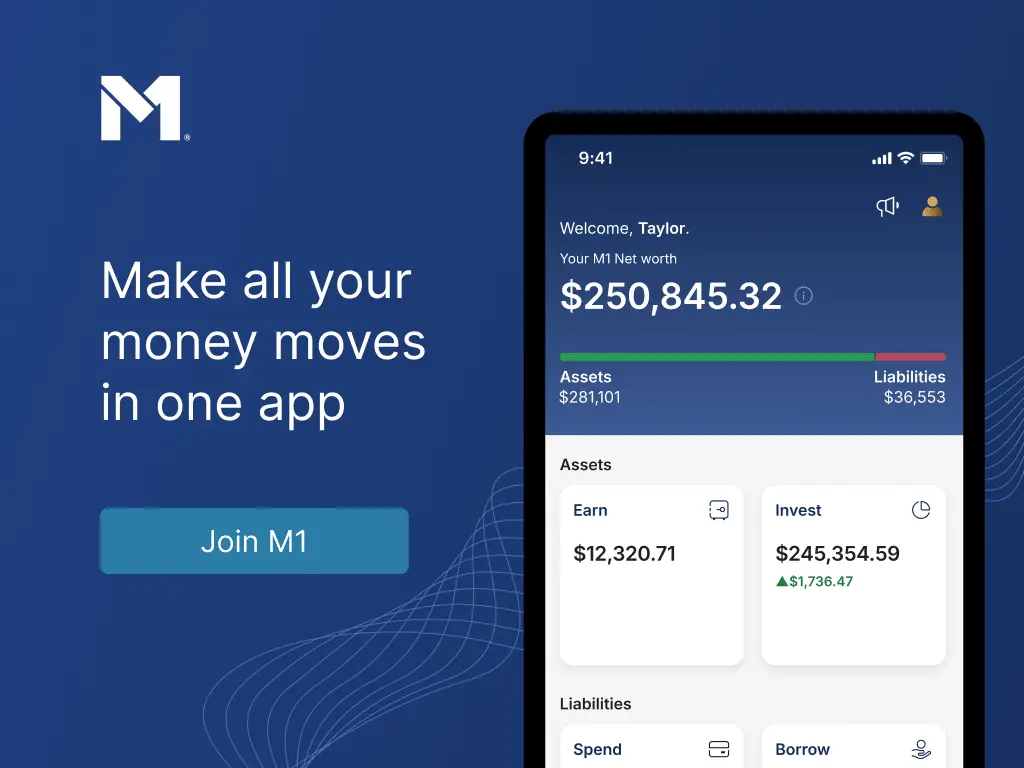Bond funds provide broad diversification to bond markets without the need for buying and rolling individual bonds. Vanguard has some of the lowest-cost, highest-liquidity bond funds around. Here we'll look at the best Vanguard bond funds for 2024.
Disclosure: Some of the links on this page are referral links. At no additional cost to you, if you choose to make a purchase or sign up for a service after clicking through those links, I may receive a small commission. This allows me to continue producing high-quality content on this site and pays for the occasional cup of coffee. I have first-hand experience with every product or service I recommend, and I recommend them because I genuinely believe they are useful, not because of the commission I may get. Read more here.
In a hurry? Here's the list:
- BND – Vanguard Total Bond Market ETF
- BNDX – Vanguard Total International Bond ETF
- BNDW – Vanguard Total World Bond ETF
- VCIT – Vanguard Intermediate-Term Corporate Bond ETF
- VGIT – Vanguard Intermediate-Term Treasury ETF
- VGLT – Vanguard Long-Term Treasury ETF
- VGSH – Vanguard Short-Term Treasury ETF
- BIV – Vanguard Intermediate-Term Bond ETF
- VMBS – Vanguard Mortgage-Backed Securities ETF
- VTIP – Vanguard Short-Term Inflation-Protected Securities ETF
- VTEB – Vanguard Tax-Exempt Bond ETF
Contents
Introduction – Why Bonds?
Bonds serve a variety of purposes in investment portfolios. They can provide a source of steady income in retirement, tax-free interest for high income earners (municipal bonds), protection from inflation (TIPS), as well as volatility reduction and downside protection for long-term investors due to their uncorrelation to stocks.
Vanguard has low-fee options for all these types of bonds, listed below. Bonds – and especially, treasury bonds – are a crucial ingredient in a well-diversified long-term investment portfolio. Bond funds eliminate the idiosyncratic risks specific to individual issuers.
Bonds are considered less risky and more stable than stocks. They are usually the best diversifier to hold alongside stocks; when stocks zig, bonds tend to zag, and vice versa. This makes them particularly attractive for risk-averse investors and retirees. Popular lazy portfolios that utilize bonds as a major component include the traditional 60/40 portfolio and the All Weather Portfolio. For a more comprehensive overview of bonds as an investment, check out this page.
Vanguard is famous for providing some of the lowest-cost, most popular bond ETFs available.
Let's dive into the 11 best Vanguard bond funds.
The 11 Best Vanguard Bond Funds
Vanguard has great, low-fee options for total bond market, corporate bonds, mortgage bonds, treasury bonds, municipal bonds (munis), TIPS, and more:
BND – Vanguard Total Bond Market ETF
The Vanguard Total Bond Market ETF (BND) is one of the most popular bond funds out there, with over $275 billion in assets. The fund provides broad access to the U.S. investment-grade bond market by tracking the Bloomberg Barclays U.S. Aggregate Float Adjusted Index. The fund is comprised of roughly 60% government bonds, with the rest coming from agencies and corporate debt. This ETF has a low expense ratio of 0.035%.
BNDX – Vanguard Total International Bond ETF
BNDX is simply the international (ex-US) version of BND above. The Vanguard Total International Bond ETF seeks to track the Bloomberg Barclays Global Aggregate ex-USD Float Adjusted RIC Capped Index (USD Hedged), providing broad access to non-U.S. investment-grade bonds. The fund has an average maturity of 10 years, over $150 billion in assets, and an expense ratio of 0.08%.
BNDW – Vanguard Total World Bond ETF
The Vanguard Total World Bond ETF (BNDW) is simply the sum of the previous two funds (BND + BNDX), providing the broadest diversification to a global index of bonds across different bond classes. Specifically, the fund is roughly 52% BNDX and 48% BND. It seeks to track the performance of the Bloomberg Barclays Global Aggregate Float Adjusted Composite Index. This ETF has an expense ratio. of 0.06%.
VCIT – Vanguard Intermediate-Term Corporate Bond ETF
Those specifically seeking income may look to corporate bonds with their relatively higher yields. The Vanguard Intermediate-Term Corporate Bond ETF (VCIT) is a popular choice for such investors, with over $30 billion in assets. This fund seeks to track the Bloomberg Barclays U.S. 5-10 Year Corporate Bond Index. It has an expense ratio of 0.05%.
VGIT – Vanguard Intermediate-Term Treasury ETF
Treasury bonds may be preferable to long-term investors for their lower correlation to stocks than corporate bonds. Treasury bonds are also the safest type of bonds. The Vanguard Intermediate-Term Treasury ETF (VGIT) seeks to track the Bloomberg Barclays U.S. Treasury 3–10 Year Bond Index. This fund has an average maturity of about 6 years and an expense ratio of 0.05%.
VGLT – Vanguard Long-Term Treasury ETF
Investors with a longer time horizon who still want bond exposure may seek out long-term treasury bonds. The Vanguard Long-Term Treasury ETF (VGLT) seeks to track Bloomberg Barclays U.S. Long Treasury Bond Index. The fund has an average maturity of about 25 years and an expense ratio of 0.05%.
VGSH – Vanguard Short-Term Treasury ETF
Those with a short time horizon will be looking for short-term bonds. The Vanguard Short-Term Treasury ETF (VGSH) seeks to track the Bloomberg Barclays U.S. Treasury 1–3 Year Bond Index. This fund has an expense ratio of 0.05%.
BIV – Vanguard Intermediate-Term Bond ETF
The Vanguard Intermediate-Term Bond ETF (BIV) provides access to the entire intermediate-term investment-grade bond segment comprised of both government and corporate debt. It tracks the Bloomberg Barclays U.S. 5-10 Year Government/Credit Float Adjusted Index. The fund has over $14 billion in assets and an expense ratio of 0.05%.
VMBS – Vanguard Mortgage-Backed Securities ETF
Investors interested in mortgage bonds can access them via the Vanguard Mortgage-Backed Securities ETF (VMBS), which seeks to track the Bloomberg Barclays U.S. MBS Float Adjusted Index. This bond fund invests primarily in U.S. agency mortgage-backed securities issued by Ginnie Mae (GNMA), Fannie Mae (FNMA), and Freddie Mac (FHLMC). It has an expense ratio of 0.05%.
VTIP – Vanguard Short-Term Inflation-Protected Securities ETF
Those seeking short-term inflation-linked bonds will benefit from the Vanguard Short-Term Inflation-Protected Securities ETF (VTIP). TIPS provide protection from unexpected, realized inflation. The fund seeks to track the Bloomberg Barclays US Treasury TIPS (0-5 Y) Index and has an expense ratio of 0.05%.
VTEB – Vanguard Tax-Exempt Bond ETF
Interest from municipal bonds, or munis for short, is tax-free at the federal level, providing tax savings for income investors, particularly high income earners. The Vanguard Tax-Exempt Bond ETF (VTEB) seeks to track the S&P National AMT-Free Municipal Bond Index and has an expense ratio of 0.06%.
Where to Buy These Vanguard Bond ETFs
All these Vanguard bond ETFs are available on M1 Finance. The broker has zero transaction fees and zero account fees, and offers fractional shares, dynamic rebalancing, and a modern, user-friendly interface and mobile app. I wrote a comprehensive review of M1 Finance here.
Canadians can find the above ETFs on Questrade or Interactive Brokers. Investors outside North America can use Interactive Brokers.
Disclosures: None.
Interested in more Lazy Portfolios? See the full list here.
Disclaimer: While I love diving into investing-related data and playing around with backtests, this is not financial advice, investing advice, or tax advice. The information on this website is for informational, educational, and entertainment purposes only. Investment products discussed (ETFs, mutual funds, etc.) are for illustrative purposes only. It is not a research report. It is not a recommendation to buy, sell, or otherwise transact in any of the products mentioned. I always attempt to ensure the accuracy of information presented but that accuracy cannot be guaranteed. Do your own due diligence. I mention M1 Finance a lot around here. M1 does not provide investment advice, and this is not an offer or solicitation of an offer, or advice to buy or sell any security, and you are encouraged to consult your personal investment, legal, and tax advisors. Hypothetical examples used, such as historical backtests, do not reflect any specific investments, are for illustrative purposes only, and should not be considered an offer to buy or sell any products. All investing involves risk, including the risk of losing the money you invest. Past performance does not guarantee future results. Opinions are my own and do not represent those of other parties mentioned. Read my lengthier disclaimer here.

Are you nearing or in retirement? Use my link here to get a free holistic financial plan and to take advantage of 25% exclusive savings on financial planning and wealth management services from fiduciary advisors at Retirable to manage your savings, spend smarter, and navigate key decisions.




Leave a Reply